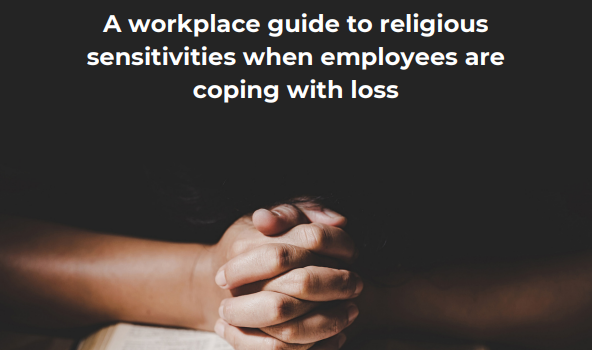Many people turn to religion when confronted by grief or going through a mourning process. Even if someone is not very religious, cultural traditions for coping with loss are often relied upon when going through a period of bereavement.
But it can also be tricky for workplaces to know how to best support their employees who are mourning, given the wide diversity of religious beliefs, practices and traditions.
Should you send flowers, or food? Will the funeral be straight away, or days and weeks later? Is it appropriate to say Rest in Peace? Does the religion believe in an afterlife?
Navigating these concepts can be incredibly complex, particularly when grief is already such an emotional time. You want to offer care and support, but are worried about being offensive or saying, doing, or sending the wrong thing.
That’s why VinciWorks have created this Religion, Belief & Bereavement: A workplace guide to religious sensitivities when employees are coping with loss.
This guide highlights different religious traditions around mourning, detailing the timelines, the concepts, the right things to say, and appropriate moments for friends and colleagues to offer their support during the mourning process.
The guide has been developed in consultation with religious leaders and knowledgeable experts from a wide variety of religions and different traditions within faiths. The guide highlights the different ways major religions will process coping with loss, and brings out the wisdom of thousands of years of supporting loved ones through grief. The guide is free to use and to share.



